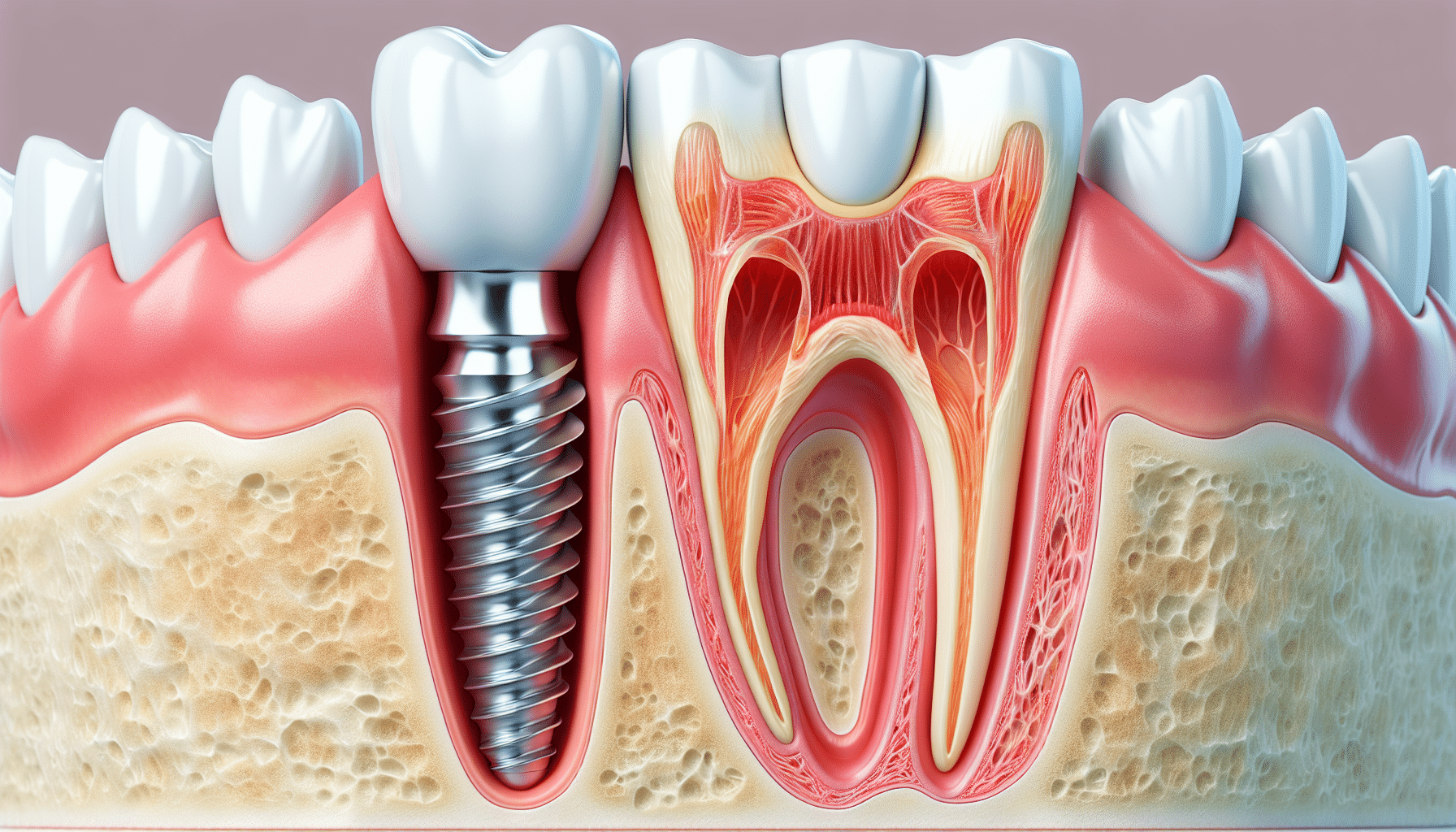The Basic Principles Of Dental Sense
The Basic Principles Of Dental Sense
Blog Article
Examine This Report about Dental Sense
Table of ContentsThe Ultimate Guide To Dental SenseNot known Facts About Dental SenseDental Sense Can Be Fun For EveryoneSee This Report about Dental Sense
are clinical gadgets surgically dental implanted into the jaw to bring back a person's capability to eat or their appearance. They supply support for man-made (phony) teeth, such as crowns, bridges, or dentures. When a tooth is lost due to injury or illness, a person can experience complications such as rapid bone loss, defective speech, or adjustments to eating patterns that cause discomfort.Oral dental implant systems consist of an oral implant body and dental implant joint and might additionally consist of an abutment addiction screw. Wisdom tooth cavity. The dental implant body is operatively placed in the jawbone instead of the tooth's origin. The dental implant joint is usually attached to the implant body by the abutment addiction screw and prolongs via gum tissues into the mouth to support the affixed synthetic teeth
(https://trello.com/w/dentalsense11/members)Structure of The Dental Implant System selecting dental implants, speak with your dental supplier about the possible advantages and dangers, and whether you are a prospect for the treatment. Things to consider: Your overall health is a crucial consider determining whether you are an excellent candidate for dental implants, how long it will require to recover, and just how long the dental implant might remain in area.
Smoking cigarettes may affect the recovery procedure and reduce the long-lasting success of the dental implant. The healing procedure for the implant body might take numerous months or longer, during which time you commonly have a short-lived joint instead of the tooth. the oral implant treatment: Very carefully adhere to the oral hygiene directions offered to you by your oral company.
The 15-Second Trick For Dental Sense
Implant failure can result in the need for one more surgery to fix or replace the dental implant system. Restores the capability to chew Restores aesthetic appearance Aids keep the jawbone from diminishing as a result of bone loss Maintains the health and wellness of the surrounding bone and gums Aids maintain adjacent (nearby) teeth steady Improves lifestyle Damages to bordering natural teeth during dental implant placement Injury to the surrounding tissues throughout surgical procedure, such as sinus perforation Injury throughout surgical procedure (for instance, crack of bordering jawbone) Insufficient function, such as seeming like the teeth do not attack with each other normally An experience that the tooth hangs or twisting in place resulting from a joint screw loosening up Implant body failing (looseness of the implant body) because of systemic infection, which may be extra most likely in patients with uncontrolled diabetes mellitus as a result of local infection in bone and periodontals supporting the implant body because of postponed healing, which might be more probable in individuals that smoke Problem cleaning the gum tissues around the implant, resulting in inadequate oral hygiene Untreated gum disease Post-surgical numbness because of nerve impingement or damage Constantly inform health care carriers and imaging technicians that you have oral implants before any magnetic resonance imaging (MRI) or x-ray procedures.
FDA is not knowledgeable about any adverse events reported for MRI or x-ray treatments with oral implants. Dental implants systems are normally constructed from materials that adhere to worldwide agreement standards of the International Company for Standardization (ISO) or ASTM International. These standards have details of what makes a safe product.

A dental implant is a framework that changes a missing out on tooth. With screw-like devices, the cosmetic surgeon inserts an implant right into the jawbone, and it serves as an anchor for a man-made tooth, called a crown. A device called a joint connects the fabricated tooth to the dental implant. The crown is custom-made to fit the person's mouth and match the shade of their teeth.
Excitement About Dental Sense
Some people are not qualified for oral implant surgery. It is for oral specialists to operate individuals with: acute illnessuncontrollable metabolic diseasebone or soft tissue illness or infectionIf these concerns are dealt with, a person can have the surgical treatment. In, dental specialists avoid operating on individuals with: If individuals with any one of the above go through oral implant surgery, there is a higher risk of the implant stopping working.

Dental useful source implant surgical procedure is a customized procedure. Provide you time to heal. Attach the message and last crown, bridge or denture.
Next off, your specialist will thoroughly position the oral implant right into your jaw. Lastly, your doctor will certainly rearrange your gum tissues and shut the laceration with stitches. If your implant is near the front of your mouth, your dentist will make a short-lived tooth for you to wear up until you recover. By doing this, you will not have a space in your smile while you recuperate.
Getting The Dental Sense To Work
Throughout the healing phase, your jawbone must fuse to the dental implant. This procedure can take anywhere from three to nine months.
As soon as your implant heals, your dental professional can attach the abutment (tiny port article) and your last restoration (crown, bridge or denture). This usually takes regarding one hour to finish and might call for a second minor surgery. You shouldn't really feel any discomfort during your oral implant procedure because your provider will certainly make use of medication to numb your gum tissues.
Report this page